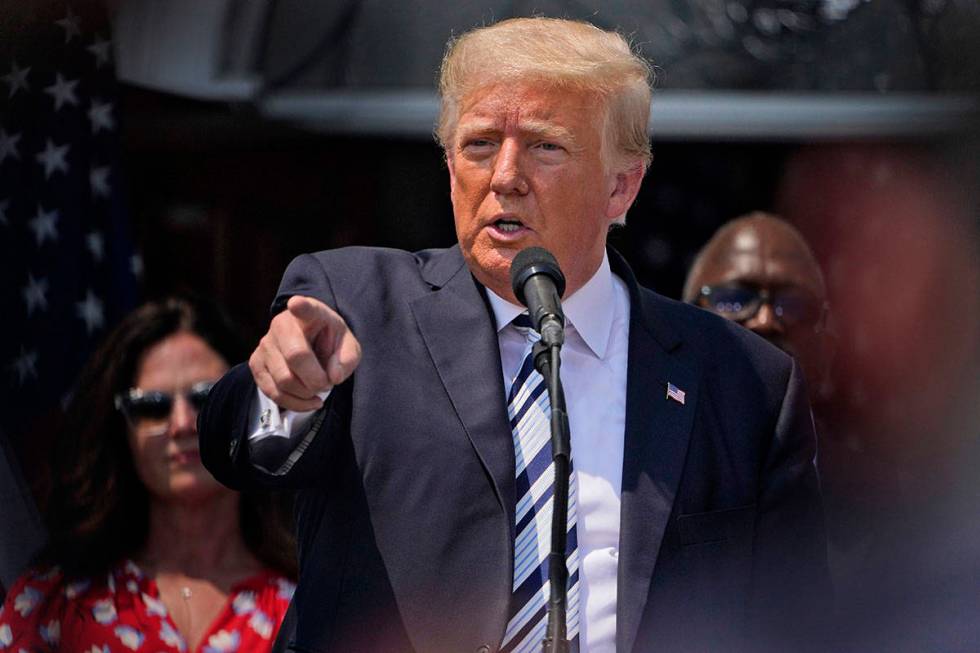VICTOR JOECKS: Trump’s Facebook lawsuit is going to fail

The merit of the concerns animating Donald Trump’s lawsuit against Facebook and its chances of success are, unfortunately, two different things.
On Wednesday, Trump filed class-action lawsuits against Facebook, Twitter and YouTube. He’s suing to get his own accounts restored and on behalf of other users who’ve had their accounts restricted. As he often does, he’s identified a serious problem.
“No longer are Big Tech giants simply removing specific threats of violence,” he wrote in a Wall Street Journal op-ed explaining his lawsuits. “They are manipulating and controlling the political debate itself.”
Fact check: True.
Just weeks before the election, the New York Post broke a bombshell story about a laptop that Hunter Biden, Joe Biden’s son, left at a computer repair shop. It should have been a major story. Instead, Twitter prevented users from sharing the article, and Facebook limited its distribution.
Throughout the pandemic, Big Tech companies cracked down on users who shared information they deemed to be inaccurate. That once included the possibility that the coronavirus leaked from a Chinese lab, which is now a widely accepted theory.
Big tech companies also booted Trump from their platforms. If they “can censor me, they can censor you — and believe me, they are,” he warned.
These are legitimate concerns. You don’t have free speech in practice when a handful of companies can quash a person’s ability to speak where others are gathered electronically.
Sites such as Facebook are possible only because of Section 230 of the Communications Decency Act. That prevents someone from suing a tech company for something an individual posted.
This protection is appropriate for social media companies that act like platforms, but not for those that function as publishers. For instance, you can’t sue Verizon if criminals used their cellphone service to coordinate the theft of your vehicle. The company operates a platform. In contrast, a book publisher bears a different level of responsibility when it picks and chooses which books to print.
By censoring one side of the debate about politics or public health, social media companies have moved from providing platforms to acting as publishers. Trump wants to fight that.
But identifying the correct target isn’t enough. You also have to identify the right tools. This lawsuit isn’t it.
Trump argues that First Amendment protections apply to Big Tech companies, even though they’re private. He contends Democrats in Congress have pressured these companies to restrict speech in a way the government can’t directly.
“In effect, Big Tech has been illegally deputized as the censorship arm of the U.S. government,” Trump wrote. If a court agreed, the First Amendment would apply.
But that possibility is minute. In a 2019 decision, the U.S. Supreme Court found that a company running a public access TV channel was a private, not a state, actor. That’s a more direct connection to government than social media companies have. Joined by the conservative bloc, Justice Brett Kavanaugh authored the 5-4 decision.
Trump is right about the threat that social media companies pose. But longshot court cases aren’t the answer. Instead, he should lead a nationwide anti-censorship campaign demanding Congress modify Section 230 and work with legislatures to explore what states can do.
Contact Victor Joecks at vjoecks@reviewjournal.com or 702-383-4698. Follow @victorjoecks on Twitter.